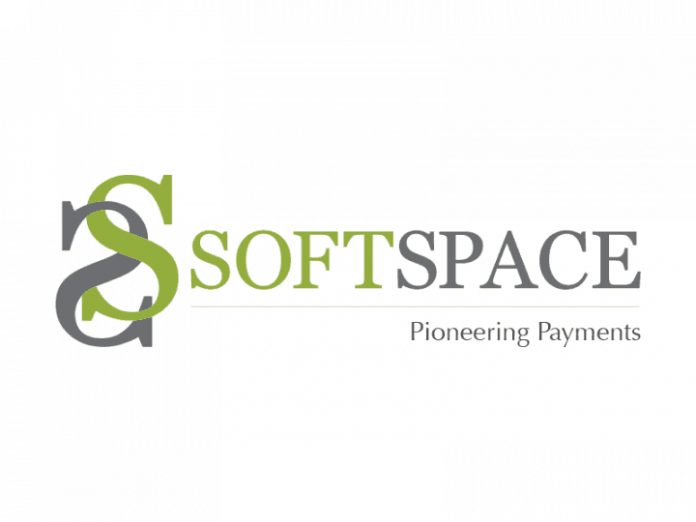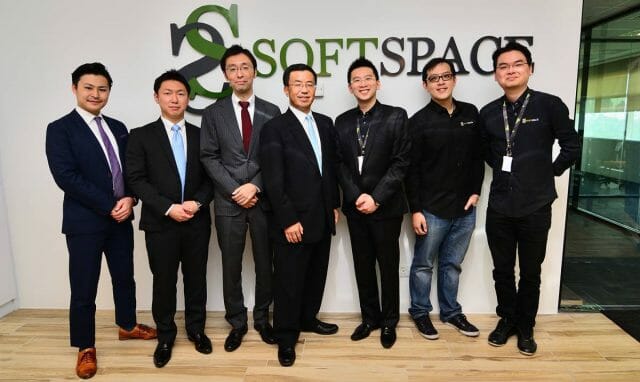Joel Tay, CEO of Soft Space discusses the difficulties of pushing FinTech in Malaysia
Forget wallets. Mobile payments are fast becoming the preferred payment method for Malaysians. In a market inundated with smartphones, it is no surprise that this industry trend would take off. However, any form of payment besides cash and card did not enjoy the popularity it has now. As Joel Tay, CEO of Soft Space Sdn Bhd says: “Our own payment landscape is pretty dull in comparison.”
Started in 2012, Soft Space is a payment platform and service provider, enabling merchants to accept payments securely and conveniently through a mobile system. Tay shares: “Nothing much has changed…it is just the regulators and banks are more open to it. They understand it more, and now know where are the security risks and pain points.”
Success outside
Although Soft Space is proudly a Malaysian company, curiously it has found success in countries outside of Malaysia, with clients hailing from Thailand, Indonesia, Vietnam, the Philippines, Taiwan and more.
In fact, Tay tells us that one of the earliest adopters of Soft Space’s products was in fact Thailand-based Kasikorn Bank. The introduction of PromptPay in Thailand has propelled the Thai market into implementing mobile point of sales (MPOS) capabilities as early as 2012.
In comparison, Tay sees Malaysia on the other end of the spectrum: “I think we are a very risk averse society; we are currently stuck in the mindset of following innovation rather than being the lead innovator. That seems to be the biggest problem we have.”
For Soft Space, it has been very difficult to tap into the financial services industry (FSI) in Malaysia. The banking ecosystem is very protected by Bank Negara Malaysia, resulting in banks breeding a culture of being risk averse.
“The problem with Malaysia is that we don’t see consumers shaping the end market or payment processes. We take what the regulators hand to us, instead of us reshaping the market,” he adds.
For Tay, the focus has always been within the Southeast Asian region. Tapping into markets of large populations as its primary market – Indonesia and Thailand, for example – is a strategic move for the company.
“We are a small market player, so we have to think very strategically. If you cover these high population countries, you are already covering half or even more of Southeast Asia,” he shares.
Tapping into markets of large populations as its primary market – Indonesia and Thailand, for example – is a strategic move for the company.
Collaborative effort
More recently, Soft Space has garnered some attention from Japanese investors. Striking partnerships with several Japanese companies, Soft Space is slowly propelling its reach beyond Southeast Asia. Despite that, traction on home-ground is still slow.
For years, any attempts from Soft Space to push the Near-Field Communication (NFC) agenda in Malaysia produced slow results, much to the bafflement of EMVCo, an international payment regulatory body that Soft Space is a member of.
Tay observes that populations in Southeast Asia is less affluent, making high-end NFC-enabled mobile phones less easily obtainable, compared to western counterparts.
He adds that adoption picks up very quickly when the cost of certain technology suddenly drops: “Not necessarily what is being pushed to us from the west is suited for the community here. We want to introduce technology that is practical for people. If it’s convenient, you will adopt it into your daily life.”
Along with the support from Malaysia Digital Economy Corporation’s Global Acceleration and Innovation Network (MDEC GAIN) programme, Soft Space has been able to not only push forward its business, but also expand its goals to bridge the gap between financial institutions and merchants.
“I think there are a lot of good Malaysian tech companies that are being overshadowed by regions that have more sexy platforms, like Singapore. It has a much
more conducive platform there, but Malaysian technology companies are pretty good as well. In this scene, it’s very competitive and visibility is short. GAIN has given us the right exposure to go further in the regional market,” Tay shares.
Beyond just facilitating card payments on mobile terminals, they also want to lower the Merchant Discount Rate (MDR) – the extra 2% charge for using credit cards – to encourage and enable further adoption of various forms of digital payment.
He concludes: “In the end, we want to be shaping technology that is practical and empower in our lives, instead of technology that is very fancy but does not apply to us.”












